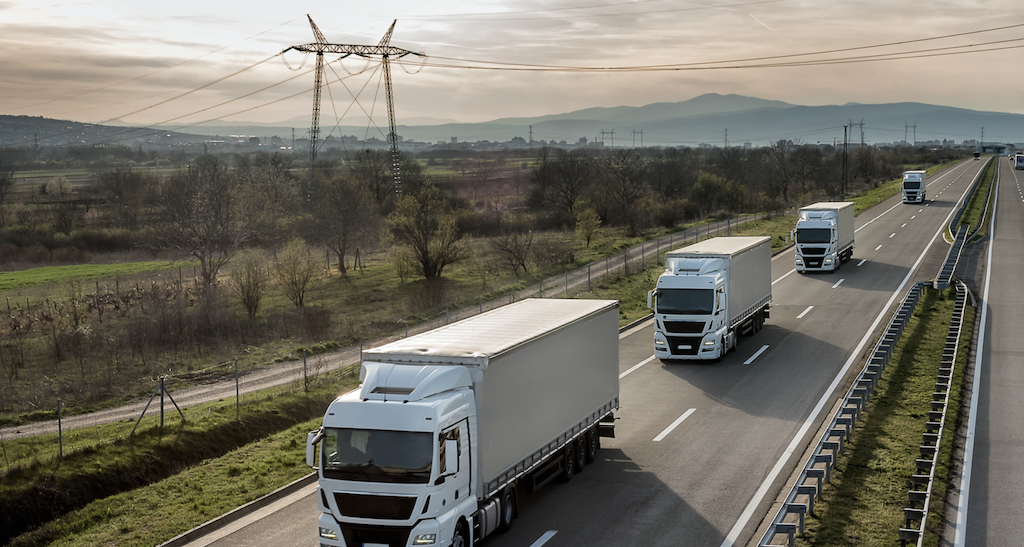Overview
There is a significant opportunity to reduce greenhouse gas emissions from the transportation sector, as this sector is now the largest source of greenhouse gas emissions in the United States. Despite the fact that medium- and heavy-duty vehicles account for a disproportionate share of those emissions, little has been done to assess increased adoption and accelerated deployment of electric trucks and electric vehicle (EV) charging infrastructure. This project fills that gap with much needed research and analysis of electric trucks and the challenges and opportunities that increased adoption present.
The Retail Industry Leaders Association (RILA) has partnered with the Center for Climate and Energy Solutions (C2ES), David Gardiner and Associates (DGA), and Atlas Public Policy (Atlas) to explore the landscape and outlook for electric trucks for freight movement. We are conducting an ongoing assessment of the market landscape, challenges, and opportunities for electric truck adoption among retailer shippers and their transportation partners. DGA facilitates and coordinates the group, provides strategic guidance, and engages with other governmental and non-governmental organizations interested in electric trucks.
Total Cost of Ownership
As part of this project, Atlas conducted an independent total cost of ownership analysis for electric trucks to help retailer shippers better understand options available to them, or to their transportation providers. The results of this analysis indicate that medium- and heavy-duty EVs are cost competitive in some use cases under current market conditions and the most important factors are the cost of charging and availability of upfront vehicle incentives.
Atlas wrote a detailed report summarizing the analysis and created a dashboard tool to explore the analysis results. The 2-page dashboard tool includes:
- Average cost per mile for both electric and diesel truck procurements broken down by cost category and vehicle use case.
- A deep dive into the procurement elements to help users understand the impact of each procurement option covered in the analysis.
- A detailed breakdown of all 40,000+ total cost of ownership results for electric trucks categorized by their likelihood of being cost competitive with an equivalent diesel model.
Read Atlas’ Assessing Financial Barriers to Adoption of Electric Trucks and view the Fleet Procurement Analysis Tool.
State of Play
In addition to the tool and analysis conducted by Atlas, C2ES authored a brief assessing the state of play for electric trucks as retailers and logistics companies explore options to reduce emissions from shipping and freight delivery. Companies interviewed for the brief noted that the need for charging infrastructure and EV incentives is an industry-wide challenge, but they recognize the long term environmental and health benefits of fleet electrification.
Read C2ES’ Insights on Electric Trucks for Retailers and Trucking Companies.
Context
Many retail businesses are working to reduce emissions of carbon dioxide and other air pollutants through corporate social responsibility, sustainability, and emissions reduction programs. These have public health benefits to the local communities and governments which these businesses serve. Several are actively engaged with initiatives like the U.S. EPA SmartWay program, the Coalition for Responsible Transportation, and EV100.
At the same time, EVs are a relatively new technology and many retailers lack access to independent analysis to help them make informed decisions about options to use electric trucks and install EV charging infrastructure. Additionally, many retailers employ a mix of private fleet trucks and outsourced trucking services in their freight operations. Therefore, the business case for electric trucks must include retailers and their third-party carriers.
DGA would like to thank Atlas Public Policy, the Center for Climate and Energy Solutions, and the Retail Industry Leaders Association for their work to gather information, provide valuable feedback, and write and edit the work products for this project. It is through collaborative efforts with organizations such as these that DGA is able to pursue its mission to arm businesses and policymakers with the information necessary to accelerate climate and clean energy solutions.

